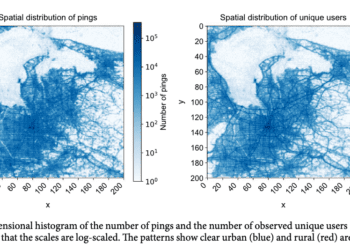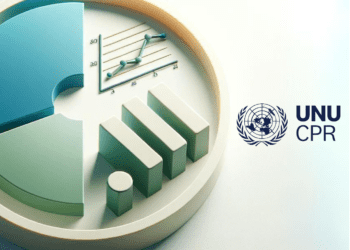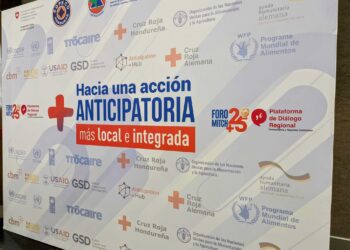On April 15, 2023, an armed conflict arose between rival factions within the military government of Sudan. The conflict initially broke out in western Sudan, as well as in Khartoum, the capital city, and the Darfur region.
Despite multiple truces and ceasefires, intense fighting has persisted throughout Sudan, forcing civilians to flee from their homes and propelling the country closer to catastrophic consequences.
The United Nations Refugee Agency (UNHCR) has cautioned this week that the crisis has the potential to displace over 800,000 individuals from the country. However, the humanitarian conflict is emerging at a moment when the United Nations is already grappling with significant shortfalls in funding.
According to the most recent update by Sudan’s Federal Ministry of Health, there have been 4,620 injuries and 528 deaths reported, although UN agencies suspect that these numbers are significantly lower than the actual figures. Hospitals are facing a severe shortage of medical supplies and healthcare workers are struggling to provide adequate care.
During a discussion with NPR’s Maya Garg, Andrew Schroeder, co-director of CrisisReady and Vice President of Research and Analysis at Direct Relief, shared insights into the ongoing conflict and how response organizations are addressing the urgent needs of displaced individuals, as well as the range of long-term challenges that come with the crisis.
Schroeder emphasized that it is important to recognize the preexisting vulnerabilities of the Sudanese refugees when discussing the conflict. Refugees who have been historically disadvantaged require more support from response agencies because their situation exacerbates the challenges of accessing basic necessities, leaving them more susceptible to harm. In light of the current crisis, it’s an essential to ensure that these individuals are provided with sufficient access to critical supplies and services, such as healthcare, food, shelter, and water.
Response organizations are working to provide these necessary resources in a timely manner, while also helping them move towards South Sudan, where resources are more readily accessible. Concurrent humanitarian operations in Chad, Egypt, and other neighboring countries have provided an initial wave of support for displaced individuals.
Schroeder explained that the delivery of aid to Sudan is often difficult, owing to the security challenges associated with the country. While neighboring countries offer more opportunities to access food, medicine, and other supplies, delivering aid within Sudan itself can be a more challenging endeavor.
During the interview, Garg asked about the reception being given to Sudanese refugees by the countries they are fleeing to. Schroeder responded that while there have been some concerns regarding the Egyptian border, refugees have generally been welcomed in South Sudan and Chad. This is primarily due to the fact that there already exists a significant population of internally displaced individuals in these countries, resulting in a heightened understanding of the gravity of the ongoing crisis.
Schroeder emphasized that it’s important to acknowledge that each of these neighboring countries have been facing their own acute crises prior to the conflict in Sudan, and therefore providing sufficient long-term support to these regions has become a top priority for the international response community.
Apart from physical security, the most pressing needs in Sudan include providing access to food, clean water, and medical care, with a considerable focus on safe maternal care services given that the majority of refugees are women and young children. In addition, there is a significant concern regarding chronic illnesses among displaced individuals, making access to medicine an even greater priority.
Sudan was already hosting over a million refugees prior to the conflict, with most living in urban areas and host communities, and given the severity of the situation, there is a pressing concern that adding more vulnerable individuals will strain already limited resources. This highlights the urgent need for additional funding and access to private resources to support agencies and ensure refugees have access to the services they require.
According to a spokesperson from the United Nations Office for the Coordination of Humanitarian Affairs (UN OCHA), the joint appeal for Sudan was $1.75 billion, but is only 14% funded. Schroeder explained that there are concerns that the level of donor attention and funding may have been diverted to other crises, which further aggravates the long-standing problem of limited resources in the region. This makes it essential for response organizations to prioritize and address the most critical needs of refugees, align their operations accordingly, and maintain the attention of donors in order to effectively respond to the crisis in the region.
In favor of approaching response operations and needs assessments proactively, Andrew Schroeder’s team at Direct Relief plans to analyze community dynamics and social connections to anticipate the movement of populations outside of Sudan as the conflict evolves. He says regions that are strongly connected to Sudan, such as Libya, Chad, South Sudan, and Ethiopia, ought to receive greater attention and resources, while countries like Kenya and Uganda, where South Sudanese people have strong connections, should also be prioritized. In addition to this, responding to the long-term impacts of the crisis involves strengthening and supporting the primary medical systems in not only Sudan, but in all of these regions.
Andrew Schroeder was also interviewed by the Turkish public news channel, TRT World, regarding humanitarian efforts in Sudan and Ethiopia. In the discussion, Schroeder addressed the challenges of aid politicization, where political agendas can overshadow the needs of the affected populations. He also explored access to those in need, and the principle of humanitarian neutrality, ensuring that aid is delivered without taking sides in hostilities or engaging in political controversies. Schroeder’s insights provided perspectives on how these factors play a role in shaping the response to the humanitarian crises in these regions.
Watch the interview here:



